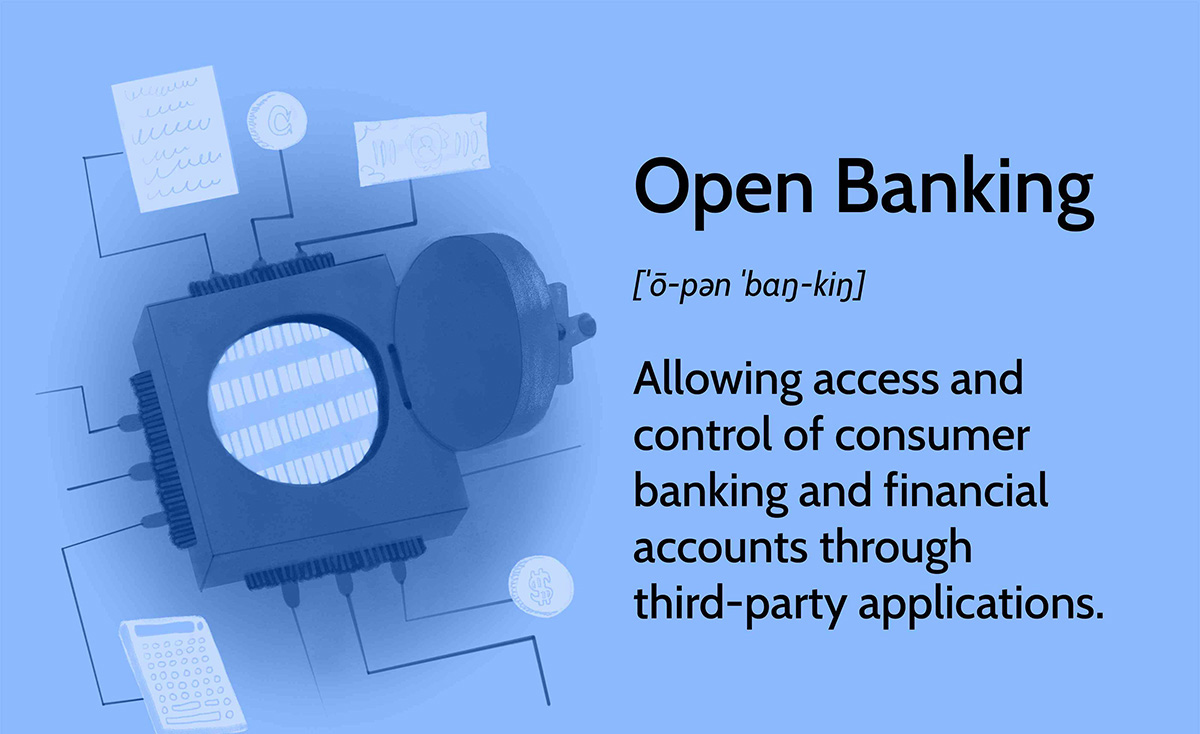

Finance
Why Work In Private Banking
Published: October 11, 2023
Discover the benefits of working in private banking and explore exciting opportunities in the finance industry. Enhance your career in finance with private banking expertise.
(Many of the links in this article redirect to a specific reviewed product. Your purchase of these products through affiliate links helps to generate commission for LiveWell, at no extra cost. Learn more)
Table of Contents
Introduction
Private banking is a specialized sector within the finance industry that offers a range of tailored financial services to high net worth individuals and families. It provides a unique opportunity for professionals to work in a dynamic and rewarding field. The role of a private banker involves managing the financial affairs of affluent clients, offering personalized advice, and providing access to exclusive investment opportunities.
Working in private banking can be an exciting and lucrative career choice. It offers a blend of financial expertise, client relationship management, and networking opportunities. This article will explore the key reasons why individuals choose to work in private banking and the advantages it offers in terms of earning potential, prestige, client-centric focus, access to exclusive investment opportunities, career growth, and maintaining a healthy work-life balance.
Private banking professionals possess a deep understanding of the financial markets and excel at building long-term relationships with their clients. They are trusted advisors who provide expert guidance on a range of financial matters, including wealth management, estate planning, tax optimization, and legacy planning. By understanding their clients’ unique financial goals and objectives, private bankers work collaboratively to create bespoke solutions tailored to their clients’ needs.
Now, let us delve into the various reasons why working in private banking can offer a fulfilling and rewarding career.
High Earning Potential
One of the primary attractions of working in private banking is the potential for a high level of income. Private bankers often receive competitive salaries and enjoy substantial annual bonuses based on performance. These financial rewards can be significantly higher compared to other roles within the finance industry.
The high earning potential in private banking is a result of several factors. Firstly, private bankers typically work with high net worth individuals who have substantial financial assets. This means that the fees generated from managing these assets can be substantial, leading to higher compensation for the private banker.
Secondly, private banking often involves providing financial advice on a range of complex and sophisticated investment products. Private bankers who excel in understanding these products and assisting clients in making profitable investment decisions are highly valued and rewarded accordingly.
Furthermore, private banking is a relationship-based industry where trust and confidence are paramount. Building and maintaining strong client relationships is crucial to attract and retain lucrative accounts. Private bankers who establish a reputation for superior service and excellent client outcomes are often rewarded with higher compensation and increased business opportunities.
In addition to salaries and bonuses, private banking professionals may also benefit from performance-based incentives such as commissions and profit-sharing arrangements. These additional financial incentives can significantly contribute to the overall earning potential in private banking.
It’s important to note, however, that high income potential in private banking is usually associated with more senior positions or established client portfolios. As with any profession, it takes time, dedication, and a proven track record to reach the upper echelons of earning potential. Nevertheless, for motivated individuals with a drive for success, private banking offers an enticing platform for financial rewards and professional growth.
Prestige and Networking Opportunities
Working in private banking comes with a certain level of prestige and exclusivity. Private bankers often work with high-profile individuals and families, managing their wealth and providing financial advice. This association with affluent clients can enhance one’s professional image and reputation within the finance industry.
The prestige that comes with working in private banking is not only limited to client interactions, but also extends to the reputation of the financial institution itself. Private banks are often well-established and recognized globally for their expertise in wealth management. Being a part of such institutions can significantly enhance a professional’s resume and open up doors to exciting career opportunities.
Moreover, private banking offers unique networking opportunities. Private bankers have the chance to interact with influential individuals, including successful entrepreneurs, corporate executives, and professionals from various industries. This exposure can lead to valuable connections and contacts that can benefit one’s career both inside and outside of the private banking sector.
Networking in private banking goes beyond client interactions. Private bankers often collaborate with professionals across different departments within their organization, such as investment advisors, portfolio managers, tax professionals, and legal experts. This cross-functional collaboration not only broadens one’s knowledge and skill set but also cultivates relationships with colleagues who may become valuable resources and mentors throughout one’s career.
Private banking professionals also have access to industry conferences, seminars, and events where they can further expand their network. These events provide opportunities to engage with industry experts, thought leaders, and peers, exchanging ideas and staying up-to-date with the latest trends and developments in wealth management. Building a strong network in private banking can open doors to new career opportunities, partnerships, and even potential clients.
Overall, the prestige associated with working in private banking and the networking opportunities it provides can contribute to long-term career growth and personal development. By leveraging these advantages, private bankers can enhance their professional reputation, expand their knowledge and skills, and establish connections that can foster success in their careers.
Client-Centric Approach
Private banking is characterized by its client-centric approach, which is a key reason why many professionals are drawn to this field. In private banking, the client’s needs and goals are at the forefront of every decision and recommendation made by the private banker.
Private bankers work closely with their clients to understand their financial objectives, risk tolerance, and unique circumstances. They take the time to build strong relationships, gaining a deep understanding of their clients’ values, aspirations, and concerns. This personalized approach allows private bankers to tailor their recommendations and financial solutions to meet the specific needs of each client, ensuring a high level of client satisfaction.
Unlike traditional retail banking, private banking focuses on providing comprehensive wealth management services. Private bankers offer a wide range of financial solutions, including investment management, tax planning, estate planning, philanthropy, and more. By taking a holistic approach to managing their clients’ financial affairs, private bankers can provide strategic advice that aligns with their clients’ long-term goals.
Private banking clients often have complex financial situations and require sophisticated strategies to preserve, grow, and transfer their wealth. Private bankers leverage their expertise, market insights, and access to resources to develop customized solutions that address these unique challenges. They act as trusted advisors, providing guidance on investment opportunities, mitigating risk, and maximizing wealth preservation.
Additionally, private bankers understand the importance of regular communication and transparency. They keep their clients informed about their financial progress, performance of their investments, and any market trends that may impact their portfolios. This open and transparent approach creates a sense of trust and confidence between the private banker and the client, fostering long-term relationships built on mutual respect.
The client-centric approach in private banking not only benefits the clients but also provides a rewarding experience for the private banker. The ability to make a positive impact on clients’ financial well-being and witness their financial goals come to fruition is highly fulfilling. By helping clients achieve financial success, private bankers can build lasting relationships based on trust and loyalty.
Overall, the client-centric approach in private banking sets it apart from other financial services sectors. Private bankers have the unique opportunity to work closely with clients, understand their needs, and develop tailored solutions that help them achieve their financial objectives. This client-focused approach contributes to the overall satisfaction of both clients and private bankers in the private banking industry.
Access to Exclusive Investment Opportunities
One of the significant advantages of working in private banking is the access it provides to exclusive investment opportunities. Private banks have robust networks and partnerships with leading investment firms and alternative investment providers, allowing their clients to access investment options that are not typically available to the general public.
Private bankers have their fingers on the pulse of the financial markets, staying abreast of new and unique investment opportunities. They have access to a wide range of asset classes, such as private equity, hedge funds, venture capital, real estate, and more. These alternative investments often have the potential for higher returns and can diversify a client’s portfolio beyond traditional asset classes like stocks and bonds.
Furthermore, private bankers work closely with their clients to understand their risk tolerance, investment preferences, and financial goals. Armed with this knowledge, they can recommend suitable investment opportunities that align with their clients’ objectives. The access to exclusive investment opportunities allows private bankers to offer tailored and diversified investment strategies, enhancing the overall portfolio performance.
Private banking clients also benefit from the expertise and insights provided by their private bankers. Private bankers conduct extensive research and due diligence on investment opportunities, evaluating factors such as market trends, risks, and potential returns. They leverage this knowledge to guide their clients in making informed investment decisions, mitigating potential risks, and maximizing opportunities.
In addition to exclusive investment options, private banking clients often receive personalized investment advice and recommendations based on their unique financial circumstances. Private bankers take into account factors such as the client’s risk appetite, time horizon, and liquidity requirements to develop investment strategies that are tailored to their individual needs.
Access to exclusive investment opportunities not only allows clients to potentially achieve higher returns but also provides them with a sense of confidence and reassurance. Knowing that their private banker has carefully selected and vetted investment opportunities gives clients peace of mind, knowing that their wealth is being managed by trusted professionals.
Overall, the access to exclusive investment opportunities is a remarkable advantage of working in private banking. It enables private bankers to offer their clients a broader range of investment options, potentially leading to attractive returns and increased diversification. Access to exclusive investments further establishes private banking as a premier choice for individuals seeking specialized financial services.
Career Growth and Development
Private banking offers numerous opportunities for career growth and development, making it an appealing choice for professionals in the finance industry. Whether one is just starting their career or looking to advance to a higher position, private banking provides a path for continuous learning and upward mobility.
Within private banking, there are various career paths to explore. Professionals can begin their journey as relationship managers or investment advisors, working directly with clients and building their expertise in wealth management. As they gain experience and prove their capabilities, they can progress to more senior roles, such as senior relationship managers, team leaders, or even positions in management or specialized areas like trust and estate planning.
Private banking firms often provide comprehensive training and development programs to nurture talent and enhance skills. New hires undergo intensive onboarding programs that cover various aspects of private banking, including investment strategies, risk management, financial planning, and client relationship management. These programs lay a strong foundation for understanding the complexities of the industry and honing critical skills.
Continuous learning is highly encouraged in private banking, with professionals having access to ongoing training and educational resources. Private bankers are expected to stay updated with the latest market trends, regulatory changes, and industry best practices. Continuing education programs, workshops, and certifications are often offered to support professional growth and stay ahead in an ever-evolving industry.
Private banking firms also provide opportunities for professionals to expand their knowledge and skills through job rotations and cross-functional collaborations. This exposure to different areas of the business allows individuals to gain a broader perspective and develop a well-rounded skill set. It can also pave the way for future leadership roles and management positions.
Furthermore, private banking offers the chance to work with a diverse client base, ranging from entrepreneurs to corporate executives, philanthropists, and family offices. Interacting with clients from various backgrounds and industries provides valuable insights and enriches one’s understanding of different strategies and approaches to wealth management.
Lastly, private banking professionals can leverage their experience and expertise to transition to other sectors within the finance industry, such as asset management, private equity, or financial planning. The skills gained in private banking, such as relationship management, financial analysis, and market insights, are highly transferable and sought after in the broader financial services sector.
Overall, private banking offers ample opportunities for career growth and development. Through training programs, continuous learning, job rotations, and exposure to diverse clients, professionals can enhance their skills, expand their knowledge, and progress in their careers. The dynamic nature of private banking ensures that there is always room for learning, advancement, and unlocking new opportunities for personal and professional growth.
Building Long-Term Relationships
One of the distinct benefits of working in private banking is the opportunity to build long-term relationships with clients. Private bankers can establish deep connections with their clients, acting as trusted advisors and becoming an integral part of their financial journey.
In private banking, the focus is not just on managing clients’ wealth but also on understanding their aspirations, goals, and concerns. By taking a personalized approach and investing time in getting to know their clients, private bankers build strong relationships based on trust, transparency, and mutual respect. This level of trust often leads to long-lasting partnerships that span years, and sometimes even across generations.
Private bankers work closely with clients to develop comprehensive financial strategies that align with their unique circumstances and objectives. They take the time to listen, understand, and address the specific needs and concerns of their clients, crafting tailored solutions that meet both their immediate and long-term financial goals.
Moreover, private bankers provide ongoing support and guidance to their clients throughout their financial journey. They regularly review and adjust investment portfolios, keeping clients informed about market trends and potential opportunities. By maintaining open lines of communication, private bankers foster a sense of confidence and security for their clients, reinforcing the trust that underpins the relationship.
Beyond financial matters, private bankers often become trusted confidants, offering advice on matters extending beyond investments. Clients may turn to their private bankers for advice on philanthropy, estate planning, tax optimization, and intergenerational wealth transfer, among other topics. Building these multidimensional relationships allows private bankers to have a meaningful impact on their clients’ overall financial well-being.
In addition to nurturing individual relationships, private bankers also have the opportunity to build connections within families. Private bankers often work with multiple generations, helping families navigate complex financial dynamics and ensure the smooth transition of wealth from one generation to the next. These long-term partnerships with families can span decades, fostering a sense of loyalty and continuity that is unmatched in other sectors of the finance industry.
Building long-term relationships in private banking is not only personally fulfilling, but it also has a practical advantage. Satisfied clients are more likely to refer their private banker to their peers, family members, or business associates, leading to additional business opportunities and growth. These client referrals serve as a testament to the strong relationships and exceptional service provided by private bankers.
Overall, the ability to build long-term relationships is a unique aspect of working in private banking. This deeper connection and ongoing collaboration with clients allows private bankers to make a lasting impact on their clients’ financial success and become valued partners in their financial journey.
Work-Life Balance
Contrary to common perceptions about the finance industry, private banking offers a relatively favorable work-life balance. While the nature of the job may require occasional long hours and client meetings outside of standard business hours, private bankers generally enjoy more flexibility and manageable work schedules compared to other finance roles.
One of the reasons private banking offers a better work-life balance is the nature of the client base. Private bankers primarily serve high net worth individuals and families, who typically have specific financial needs and expectations. This often means that the workload is more predictable and structured compared to investment banking or trading roles, where high-pressure, time-sensitive transactions are the norm.
Private banking professionals have the flexibility to manage their time and prioritize their tasks based on the needs of their clients. This flexibility allows for a better balance between work and personal life, enabling private bankers to attend to personal commitments and enjoy leisure time while still delivering exceptional service to their clients.
Furthermore, the client-centric approach in private banking emphasizes building long-term relationships, which means that private bankers are not solely focused on meeting short-term targets or deadlines. Instead, they have the opportunity to develop meaningful connections with their clients and work collaboratively to achieve their clients’ long-term financial goals. This approach often leads to a more balanced and less stressful work environment.
Private banking firms also understand the importance of work-life balance and the well-being of their employees. Many firms offer comprehensive benefits packages, including flexible work arrangements, wellness programs, and support for personal development. These initiatives encourage a healthy work-life balance and contribute to the overall well-being and satisfaction of private banking professionals.
Additionally, private banking roles often involve teamwork and collaboration. Private bankers work in teams, allowing for workload distribution and support from colleagues during busy periods or when specific expertise is needed. This teamwork culture helps alleviate individual work burdens and promotes a more balanced workload among team members.
While it is essential to note that work-life balance can vary depending on individual work habits, client demands, and specific roles within private banking, the industry overall offers more flexibility and better opportunities for maintaining a healthy balance between work and personal life than many other finance sectors.
Ultimately, private banking provides professionals with the chance to excel in their careers while also enjoying a fulfilling personal life. The work-life balance in private banking allows individuals to have a meaningful impact on their clients’ financial success while also finding time for family, personal interests, and self-care.
Conclusion
Working in private banking offers a range of unique benefits that make it an attractive career choice for finance professionals. The industry provides opportunities for high earning potential, prestige, and networking as professionals engage with high net worth clients. The client-centric approach in private banking allows for personalized financial solutions and the building of long-term relationships based on trust and mutual respect. The industry also provides access to exclusive investment opportunities, allowing private bankers to create diversified portfolios for their clients. Moreover, private banking offers ample opportunities for career growth and development through continuous learning, job rotations, and exposure to a diverse client base.
Furthermore, private banking provides a relatively favorable work-life balance compared to other sectors within the finance industry. Flexibility in managing time and the focus on building long-term relationships contribute to a more balanced and less stressful work environment.
In conclusion, private banking combines financial expertise, client relationships, and unique opportunities in a fulfilling and rewarding career path. Whether starting out in the industry or seeking growth and advancement, professionals in private banking can benefit from the high earning potential, networking possibilities, client-centric focus, access to exclusive investments, and opportunities for career growth. The ability to build long-term relationships and maintain a healthy work-life balance further adds to the appeal of the industry. Overall, private banking offers a compelling platform for finance professionals who seek challenging and rewarding careers.














